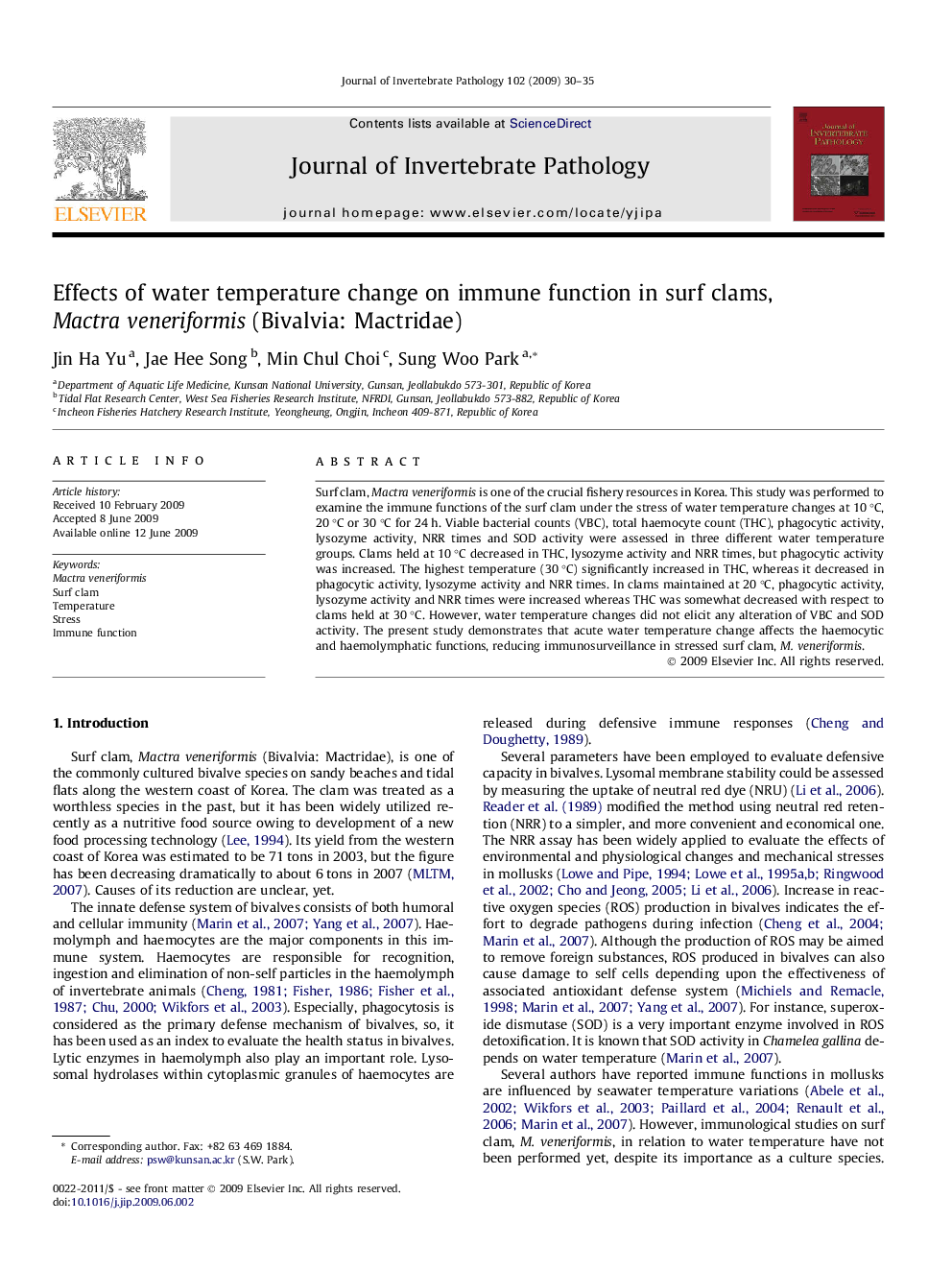| Article ID | Journal | Published Year | Pages | File Type |
|---|---|---|---|---|
| 4558066 | Journal of Invertebrate Pathology | 2009 | 6 Pages |
Surf clam, Mactra veneriformis is one of the crucial fishery resources in Korea. This study was performed to examine the immune functions of the surf clam under the stress of water temperature changes at 10 °C, 20 °C or 30 °C for 24 h. Viable bacterial counts (VBC), total haemocyte count (THC), phagocytic activity, lysozyme activity, NRR times and SOD activity were assessed in three different water temperature groups. Clams held at 10 °C decreased in THC, lysozyme activity and NRR times, but phagocytic activity was increased. The highest temperature (30 °C) significantly increased in THC, whereas it decreased in phagocytic activity, lysozyme activity and NRR times. In clams maintained at 20 °C, phagocytic activity, lysozyme activity and NRR times were increased whereas THC was somewhat decreased with respect to clams held at 30 °C. However, water temperature changes did not elicit any alteration of VBC and SOD activity. The present study demonstrates that acute water temperature change affects the haemocytic and haemolymphatic functions, reducing immunosurveillance in stressed surf clam, M. veneriformis.
